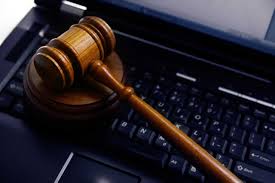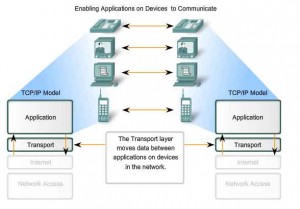The cyber space has been the greatest example of the human advancement with all the world, services and products available on the world wide web. With all transactions and money flows hugely shifting towards this virtual existence, it has also provided as a breeding ground for frauds, cheating and offences. The legal issues that are faced in cyber space can broadly be divided into types are as follows:
Domain Name Issues
- Typo squatting –this is a practice in cyber space that feeds on the typographic errors of an intending user while searching the domain name of a site. Here a person registers a domain name similar to that of a site with high cyber traffic with minor typo error. These sites are filled with links to paid advertisements that generate revenue for the typosquatter and most of the times, the web surfer tricks or deceive you into believing that you are on the correct site. This diverts traffic away from the intended site and many a times they are routed to a competitor’s site or a pornographic site.
- Cybersquatting – this is when someone has registered a domain name, in bad faith, that is violating the rights of the trademark owner. They usually intend to extort payment from the trademark owner, and keeping the names to sell later to the highest bidder.
- Pagejacking- Pagejacking is when an offender copies parts of an already existing website, and then puts it up on a different website to make it look like the original. Pagejacking is used in phishing schemes.The Uniform Domain Name Dispute Resolution Policy (UDRP) is a cost-effective and faster alternative to a lawsuit, when there is a domain name dispute that needs to be resolved. This was set up by the Internet Corporation for Assigned Names and Numbers (ICANN), the group responsible for domain name registration.
SPAM
An E-mail has to move across many lines to reach its final destination. Thus the E-mail is not absolutely protected from hackers who wish to know the contents of the e-mail. Here are some other issues to keep in mind when sending e-mail:
E-mailing in General – Aside from hackers, government agents may access your e-mail. If a government agent has a valid warrant, the Internet Service Provider must release the e-mails to the agent.
E-mail from Work – An employee does not have a reasonable expectation of privacy in his e-mail when at work on the employer’s time and using the employer’s office equipment. At a work place, all official mails sent from the server of the firm or corporation are reserved for the assessment or approval of the administrator
The cyber space is as dangerous an arena as it is attractive, The data that is in the web may be safe from any physical damage but the threat of a virtual invasion still persists, keeping these issues in mind, we need to tread safer on even the virtual terrains.





27 Comments. Leave new
Very informative article
Well explained.
One must read this.
Very essential topic.
Good work.
Great article Siddhant.
Great effort.. A must read article..
Very well explained..!
Very informative, good job!
Well Explained Article
Very informative post…good work.
Explained well
Very nice!
A must read! Very useful in today’s world.
Informative.
very nicely written.
Well Written!!!
very informative article!
well explained
nicely framed and written. good job!
very informative.
Informative one!
Great effort!
Very nice. Very good write up, worth reading for the shake of knowledge.
Actually cyberspace provide us so many things ….it provide ys a spcial space to present our views…..but it has dome legal issues as welll which hardly people knows about it…soits good to have such articles which gave us such infos.
very informative !
number of spams are taking place and increasing now a days in the cyber world!
Really good work
Well articulated
Good one 🙂